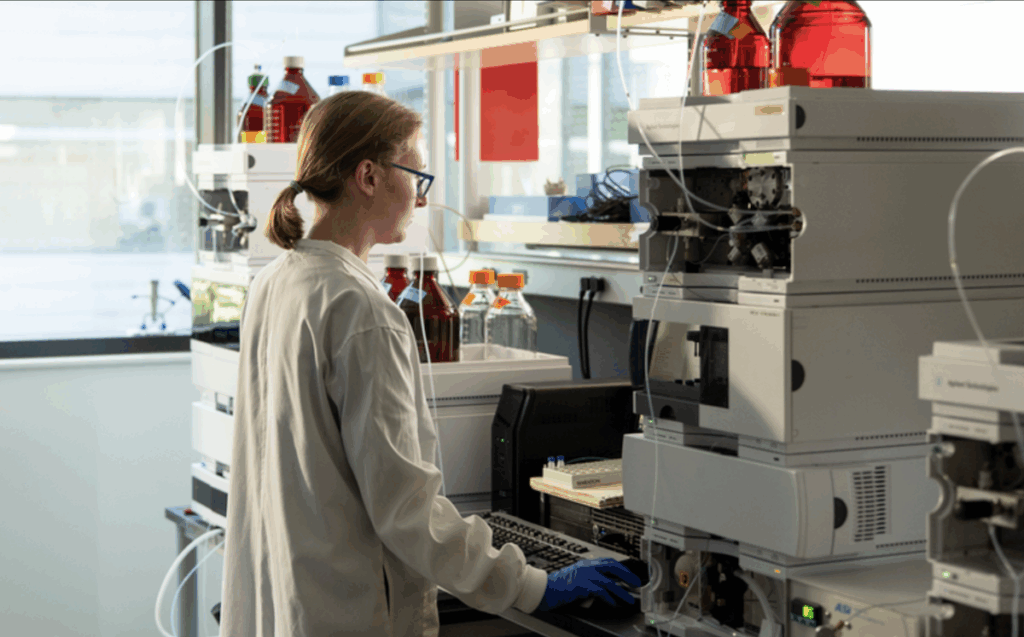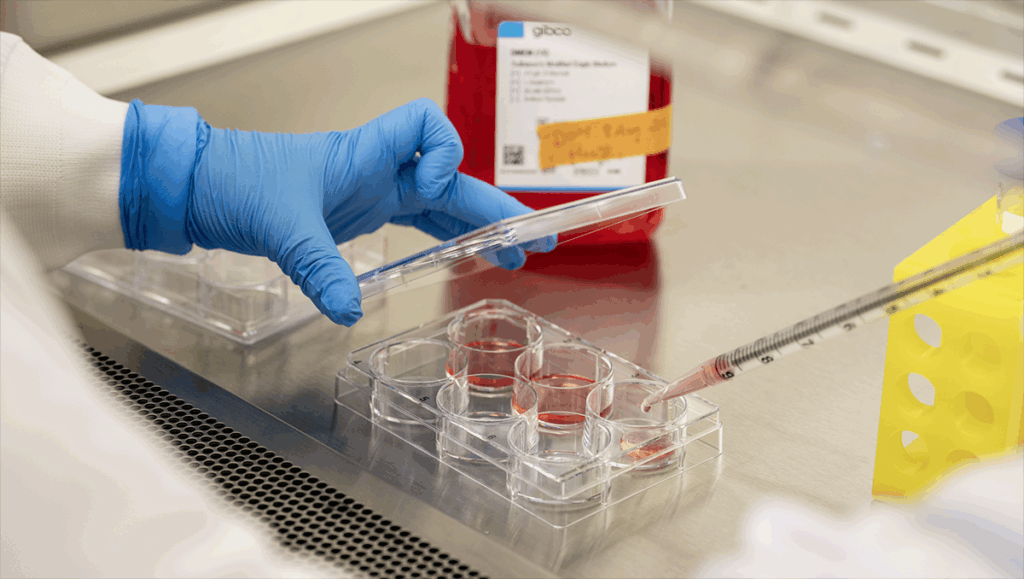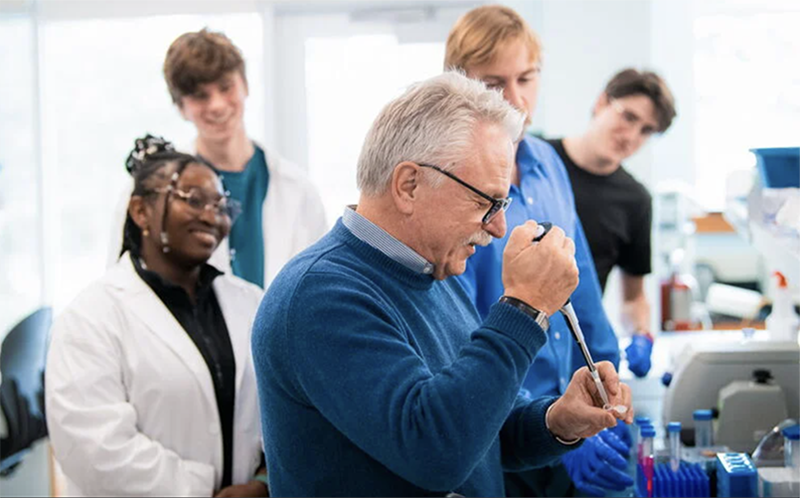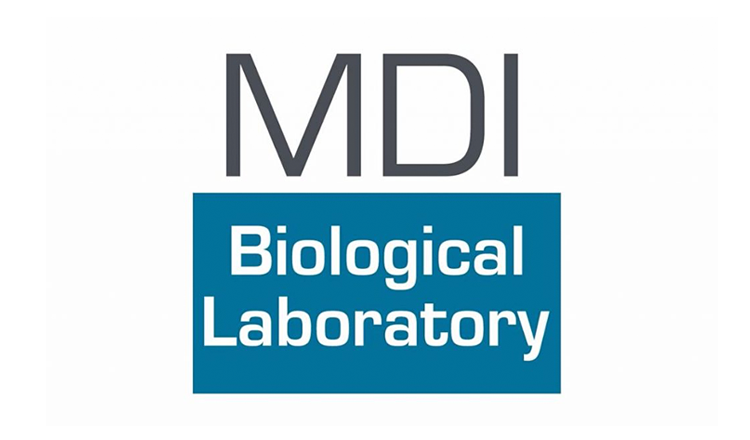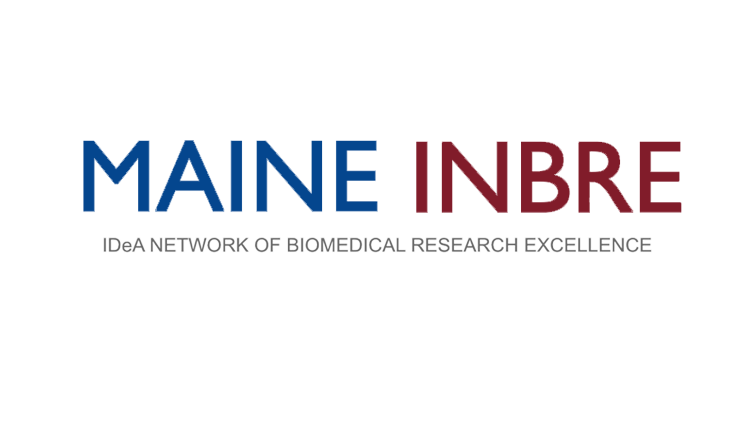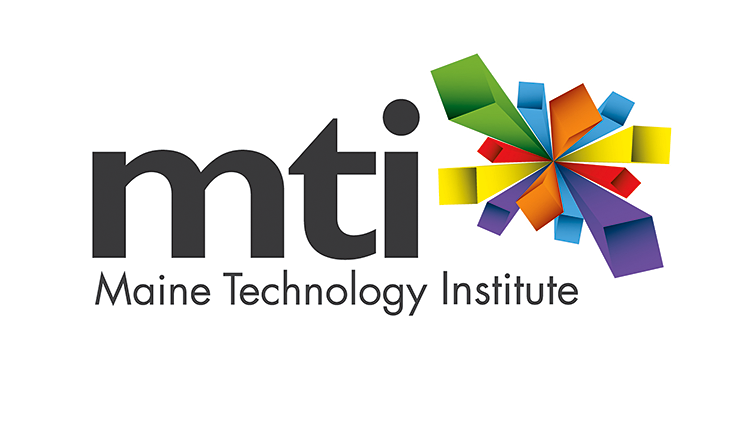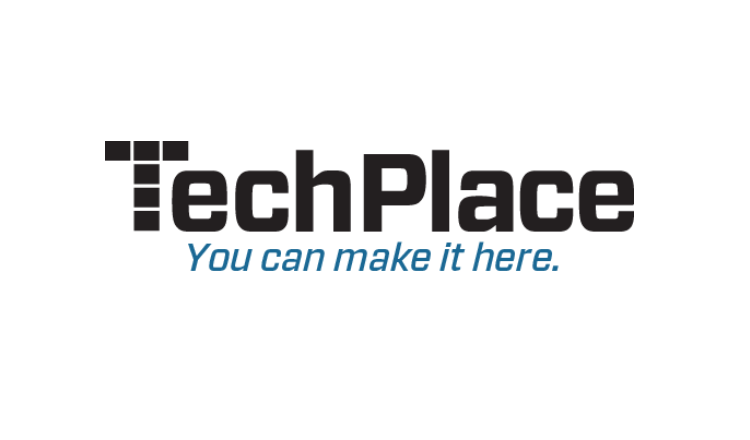Life Sciences
The life sciences industry is one of the key economic pillars in Maine, with increasing importance in recent years.
Biomedical manufacturing is one of the fastest growing sectors in Maine. Life science jobs in Maine grew at a faster pace than all New England states during the last 5 years. Average annual income for jobs in this sector is $108,000.
Emerging trends to watch in this sector include: innovative food and agricultural technology (from plant-based protein sources to new technology for aquaculture), expanded use of at-home diagnostics and testing products, and increasing use wearable technology to monitor biometrics.
Blue biotechnology – the intersection of life sciences and the blue economy – is one of the fastest-growing global industries, projected to exceed $10 billion in value globally by 2027.
3.3% of total annual Maine exports
31% job growth over last 5 years
supports nearly 10,000 jobs in Maine
Maine’s life sciences sector includes more than 450 companies with many focusing on manufacturing of medical and diagnostic supplies, scientific research and development services, and medical diagnostic laboratories. Global biotech companies such as Abbott, BBI Solutions, Corning, IDEXX, Molnlycke, GVS, and Lonza have Maine facilities. World renowned research institutions located in Maine include Bigelow Laboratory for Ocean Sciences, Jackson Laboratory, and Maine Medical Center Research Institute. In addition, more than 20 Maine colleges and universities offer degrees in life sciences.
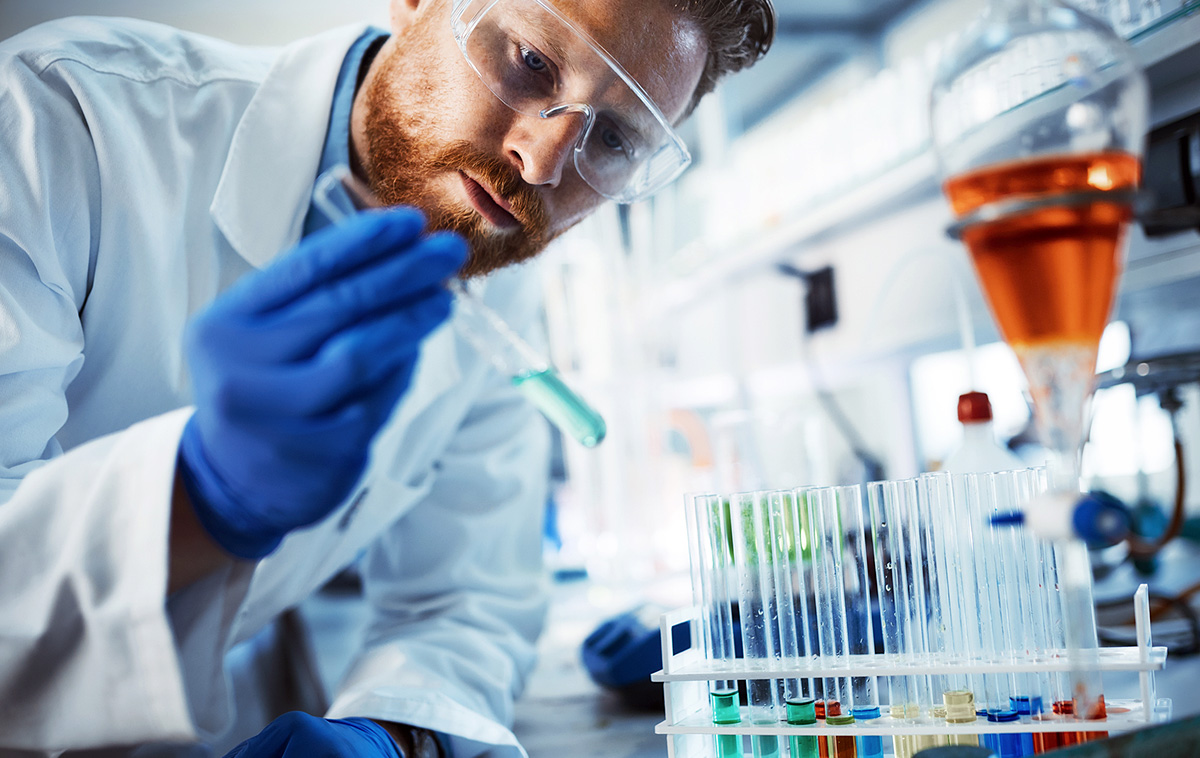
Bigelow Laboratory for Ocean Sciences recently launched a program called Blue Biotech Innovation Ecosystem that aims to accelerate the translation of marine science into commercial opportunity. Partnering with Hatch Blue and regional collaborators, the program’s goal is to launch an “innovation studio,” attract investment, and create jobs by leveraging Maine’s experience in life sciences and the blue economy.
The partnership with Hatch Blue brings essential international experience and networks that will accelerate Maine’s development as a global blue biotech hub.
Shared Lab Space for Maine’s Growing Biotech Community
The recently launched BioPILOT Lab is designed to help early-stage biotech and life sciences startups conduct R&D without high overhead costs. Member companies have access to valuable equipment for cell biology, microbiology, biochemistry, and molecular biology. Members can reserve lab space and cutting-edge tools to prototype, analyze, and develop innovative processes and products. BioPILOT is a Roux Institute program offered in collaboration with the University of Southern Maine (USM) and supported by the Maine Technology Institute (MTI).
Global Medical Products Manufacturer to Expand Maine Production
Global medical products manufacturer Mölnlycke Health Care walks the talk when it comes to sustainability by locating its factories close to its customers. With nine factories in more than a dozen countries around the globe, the company’s two factories in Maine produce a majority of its wound-care products for a rapidly growing US market, generating 30% of the company’s $2.3 billion in annual sales.
Expansion of Biomed Research and Education Network
MDI Biological Laboratory, a nonprofit hub for the science of aging and regeneration, is leading the expansion of the Maine IDeA Network of Biomedical Research Excellence (INBRE). In 2024, the lab received a $19.4 million National Institutes of Health grant to renew and expand INBRE. Now totaling 17 members, the network of research and higher education institutions working together makes Maine competitive in the global biomedical world.
Applied Genomics Course to Advance Personalized Medicine
The Jackson Laboratory (JAX) and the University of New England (UNE) recently announced the launch of a new Applied Genomics course designed to equip healthcare professionals and students with essential genomic knowledge to enhance patient care. Offered through UNE’s Master of Biomedical Sciences program, this self-directed course will empower aspiring medical professionals and researchers to harness genetic information for targeted treatment, precision medicine, and improved patient outcomes.
The Applied Genomics course is designed for graduate students who aspire to careers in healthcare and biomedical research, giving them a view into the myriad ways genomics can be integrated into medical decision-making. The program embeds students in case scenarios reflecting real clinical practice in key fields such as primary care, cardiology, oncology, and rare diseases, ensuring that participants stay at the forefront of precision medicine.
Self-directed, online programs fit into the busy schedules of clinicians and students, making advanced genomic education available to learners worldwide.
Industry Support
Trade organization which promotes the industry’s steady growth, interprets its benefits to the public, and influences pertinent public policy
Incubator infrastructure for early-stage life sciences companies including turnkey wet lab, office space, and housing; diverse animal models for research; microscopy resources; and opportunities for individual scientists and independent companies to work jointly with an international group of faculty
Collaborative network of Maine educational and research institutions focuses on creating a technically skilled workforce in Maine through biomedical research training for undergraduates, providing research support to young faculty to increase their competitiveness for federal biomedical research grants, and improving the research infrastructure
Offers grants, loans, equity investments, and services to support Maine’s innovation economy
Incubator infrastructure for early-stage life sciences companies including turnkey wet lab and office space, as well as a place to network with other innovators, research and develop ideas, build prototypes, test products, assemble, grow, and learn
Partners with Maine life science and health entities to develop a regional identity and to build a talent pipeline for the biosciences
International Investors
We’d love to hear from you to discuss your interest in this sector and Maine’s advantages.

